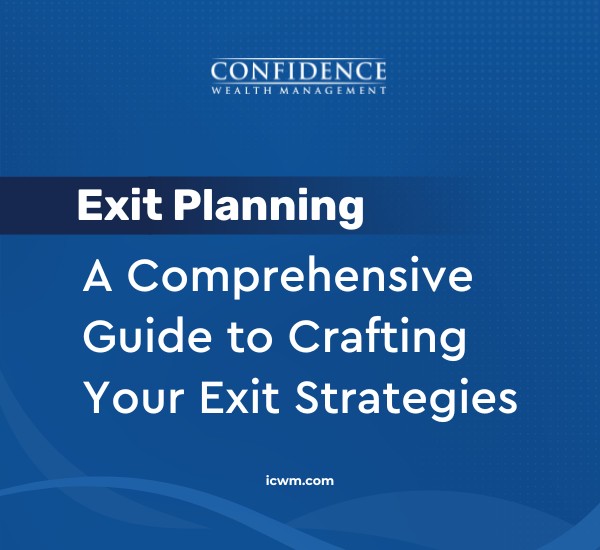If you’re planning a trip, you’re not likely going to just buy a ticket and leave. You could do that, but you’re just as likely to run into a wild series of problems as you are to have a good time.
That’s because having a good trip takes proper planning, and so does securing your financial future.
The market is more complex and filled with many more traps than planning for a vacation. There are a lot of ways you can invest your money, and many more ways to lose it. Like venturing into the Amazon, it’s exciting but also very helpful, even necessary, to have a guide.
That’s what a financial advisor is – your guide into the wild bush of the markets. But how do you pick the right one? What should you look for?
Here is how to find a financial advisor.
Do They Have the Knowledge and Capability You’re Looking For?
Many brokers have experience in giving investment advice, but not in taking a holistic approach.
Good investing is more than taxes, bonds, mutual funds, and growth. It’s about increasing your wealth.
A good financial advisor will help you create an elaborate plan that will include not just your investment planning but tax planning, generational planning, legacy planning, and health planning from a financial perspective.
If you’re a business owner, there are even more areas a financial planner can help. I’ve worked with many business owners to uncover ways for them to plan for the future of their businesses that they never knew existed.
You want someone that can look at the big picture and can help walk you through all the possibilities in an understandable, easy-to-follow way. If they can’t do that, they probably don’t know what they’re talking about.
How to Choose?
Once they’ve shown they know their stuff and want to take a holistic approach, you have to decide if they’re the right advisor for you.
Many people make a personality trait the main factor in how they choose an advisor. While it’s important to have a good personality fit with the person who will be managing your wealth, it’s even more important that they have the right capability and the right information.
This is to say that you should match your needs with their expertise before you try to match their personality. Make sure that they probe into your situation enough and that they have covered every possibility.
I’ve seen many people go with an advisor based on personality fit more than solution fit, and they inevitably run into problems.
The next trait you want to look for is commitment. Are they someone who’s going to work for you, or are you just another client in their backlog?
While they might be charming and know their stuff, it won’t matter if they aren’t going to work hard for you. Your financial plan is something for the long term. Not something you should be changing every day. If they aren’t committed to helping you over the long term, they’re probably not going to work hard enough.
If you’re not confident in your financial plan, get a second opinion. Make sure you’re on track and haven’t missed something.
What are the Fees?
How much are you paying, and in what way? This can seem straightforward, but often isn’t.
The problem with this industry is that hidden fees lurk all over the place. We see it all the time. People come to us with their financial statements, we break them down, and we uncover hordes of fees they were unaware of.
As fiduciaries, we break down all our fees and disclose them to our clients regularly – including the fees that don’t always show up on financial statements.
Be aware of hidden fees and other obscure internal expenses.
Pay Attention to Their Language
When you meet with a financial advisor, listen to what they say and how they say it. Are they concerned about you and discovering everything they can about your specific situation, or are they more interested in making recommendations and hearing themselves talk?
If the subject of the conversation is strictly about this investment or that investment then something is wrong.
Keep track of how often they ask you questions. Get a sense of how interested they are in understanding you. Are they trying to get to your needs and what you’re looking for in your future?
Track the amount of time they’re talking compared to how much you’re talking. This is a simple way to measure how much they’re interested in helping you versus helping themselves.
A corollary to this is to pay attention to how well they’re explaining the solutions they’re presenting to you.
For example, is it a short explanation and they’re expecting you to just accept it, or are they trying to educate you?
Education in a non-patronizing way is key to helping clients understand the solutions available to them. The more a client is educated, the more aware they are of what needs to be done and why. This builds commitment to the solution and trust between advisor and client.
If you’re married, pay attention to how well they’re communicating with your spouse. Your spouse is most likely involved with your finances, and if your financial advisor is ignoring them or curt with them, it’s a red flag.
In Conclusion
Remember that a good financial advisor doesn’t only recommend investments or pontificate about the market. They educate you. They take a holistic approach. They have competency in the areas you need guidance with and seek to understand the complexities of your situation.
They make sure that you understand what you’re getting into, with all the pitfalls and potential, so that you can best decide how to proceed. They are your partner and they should help you feel confident and secure, not the opposite.
As experienced financial professionals, we are here to help you realize your financial dreams and educate you on the best options for your unique situation.
Please connect with us and let us help you learn more about your options so you can plan for a bright future. We would be delighted to go on the journey with you.









